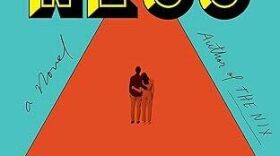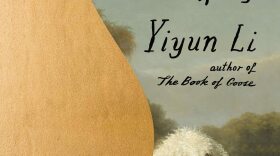Michael Schaub
Michael Schaub is a writer, book critic and regular contributor to NPR Books. His work has appeared in The Washington Post, The San Francisco Chronicle, The Portland Mercury and The Austin Chronicle, among other publications. He lives in Austin, Texas.
-
Nathan Hill's stunning new novel about the stories we tell about our lives and our loves, and how we sustain relationships throughout time, is both funny and heartbreaking, sometimes on the same page.
-
The stories in Yiyun Li's book focus chiefly on people trying to put themselves together after loss, dealing with anguish that takes its time and rises from its dormancy at unexpected moments.
-
This is a wonderful novel that expertly combines adventure and terror, sprinkled with The Changeling author's mordant wit and assured prose. It is a horror novel, but it's also a refreshing western.
-
Tyriek White's debut novel is a triumph; it's a gorgeous book about loss and survival that gives and gives as it asks us what it means to be part of a family, of a community.
-
Jess Row's new novel is about an American family that has imploded, one that's broken, possibly irretrievably. It's a stunning book, a high-wire balancing act that tries to do a lot — and succeeds.
-
Singer and guitarist Susanna Hoffs rose to fame with the Bangles in the 1980s. With her new book, she proves her immense writing talent isn't just confined to songs.
-
Sebastian Barry's relentlessly bleak, stunning new novel follows his character Tom, a retired police detective, as his life is thrown into disarray when he's confronted with a past he'd rather forget.
-
Jack Bittle's book takes a look at several communities that have been affected by climate change, and how the lives of their residents — those who have survived — have been altered by extreme weather.
-
It would have been easy for the famous journalist to fall into the nostalgia trap with his memoir, which chronicles his earliest years in the newspaper business. Happily, he doesn't.
-
Journalist and Brain on Fire author Susannah Cahalan writes in an urgent, personal book that the '70s study by David Rosenhan had an outsized effect on psychiatry — and may have been fatally flawed.









